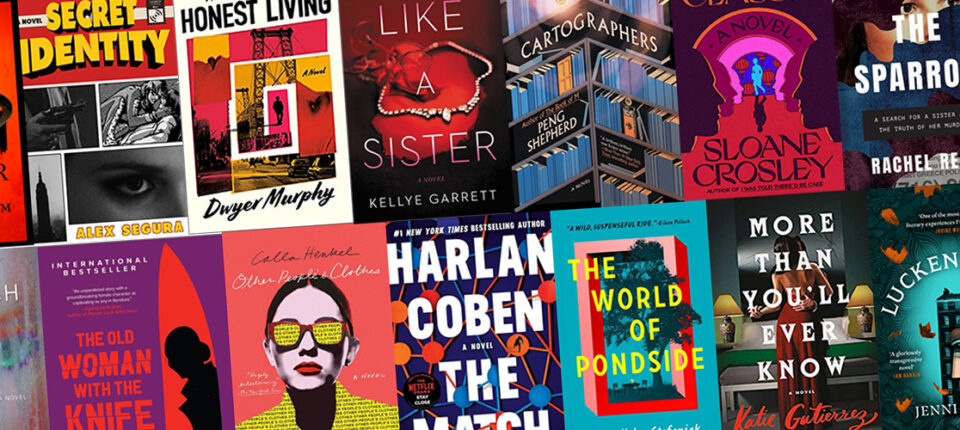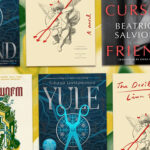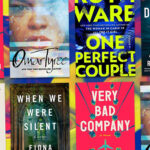If you’re starting your year wishing for a sense that time is passing, than look no further! For the best way to know that each day is not, in fact, the same as the last is to keep a close watch on all the wonderful books coming out this year. If your taste runs toward social horror, dark fantasy, literary noir, contemporary espionage, fair play mysteries, or absurdly entertaining psychological thrillers, then congrats, for 2022 is the year for you. I mean, it’s still a pandemic. Let’s all keep our expectations low. Expect when it comes to crime fiction, where you can keep your expectations very high indeed.
___________________________________
JANUARY
___________________________________

Sara Stridsberg, The Antarctica of Love
(FSG)
Stridsberg’s evocative new novel is a portrait of a young woman and her violent death, a powerful story that ripples through time and across generations and social divides. How many lives can one murder touch? Stridsberg takes on the project with extraordinary empathy and insight. –DM

Janice Hallett, The Appeal
(Atria)
Okay, so this would be a great mystery novel whether or not it featured a community theater group, but the added drama makes The Appeal into a perfect follow-along caper. Told in emails, announcements, and other found texts, The Appeal has a charmingly meta set-up: two law students have been assigned all of these documents to analyze. If they misinterpret them, the wrong person may go to prison for a long time. And you, the reader, can interpret this fair play mystery right alongside them. –MO
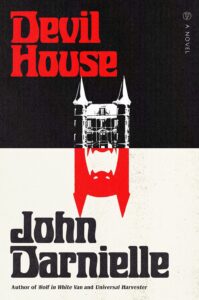
John Darnielle, Devil House
(MCD)
In Darnielle’s brooding, atmospheric new thriller, a successful true crime author in search of a new project decides to move to a Northern California town, into a house that was the site of a notorious murder decades before, connected to the so-called Satanic Panic. Darnielle’s storytelling is pitch perfect and the dread comes seeping through in measured portions until suddenly the weight of it overwhelms. –DM

Jenni Fagan, Luckenbooth
(Pegasus)
Ok maybe it’s just the pandemic, but there’s a new era of great books entirely taking place in apartment buildings, vacation getaways, and fancy hotels, and I am so here for it—if hell is other people, then we can only hope hell is a prewar building with original molding. In Jenni Fagan’s stunning new novel, an apartment building at 10 Luckenbooth Close in Edinburough first is scene to a terrible crime, then witness to all the blazing currents of the 20th century, moving on to explore visions of alternative history and future dystopias. Perfect for those who liked Things in Jars by Jess Kidd. –MO
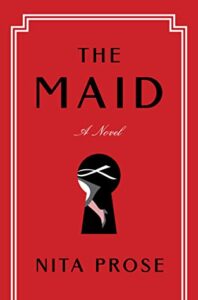
Nita Prose, The Maid
(Ballantine)
I was thrilled to discover that The Maid is a locked-room whodunit, a delightful and difficult subgenre to begin with, let alone that The Maid told from the perspective of a character who is, more often than not, a plot device: the maid who finds the body. A clever, corking, crackling novel that twists and bends the expectations it sets up as it goes along. –Olivia Rutigliano, CrimeReads Associate Editor
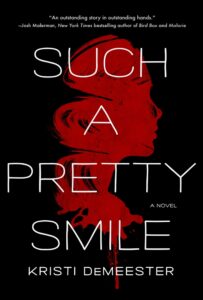
Kristi Demeester, Such a Pretty Smile
(St Martins)
Such a Pretty Smile is getting rave reviews from all my fave horror authors, including the amazing emily m. danforth, and for the right reasons—it has a perfect setup to explore the ways that young women are broken into the ways of the world. Adolescent girls on the cusp of womanhood are being found slaughtered and mutilated by a presence that feels too malevolent to be human, and is drawn to those whose fierce independence makes them a target for enforcing the status quo. –MO

Nikki May, Wahala
(Custom House)
Wahala is a classic tale of interlopers. Three Anglo-Nigerian best friends, each with their own secrets, find their lives turned upside down by a newcomer who seems to mean well, even as she carves a path of destruction. This one deserves all the Sex and the City comparisons! –MO
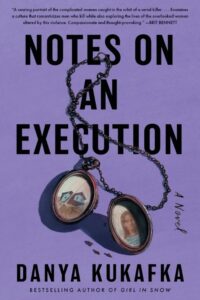
Danya Kukafka, Notes on an Execution
(William Morrow)
Danya Kukafka’s Notes on an Execution deserves to stand along Ivy Pochoda’s These Women, Nicola Maye Goldberg’s Nothing Can Hurt You, and Carolyn Ferrell’s Dear Miss Metropolitan as victim-focused narratives that call out the exploitation of women’s suffering in crime stories. In Notes on an Execution, serial killer Ansel Packer is counting down to his execution. And the women in his life are also counting down. They are also wondering: with a different life, who would Ansel be? More importantly, who would his victims have been, had they clung to life instead? –MO

Robyn Gigl, Survivor’s Guilt
(Kensington)
In this followup to Robyn Gigl’s incredible debut, By Way of Sorrow, a millionaire businessman has been killed and his daughter accused of the crime. Erin McCabe, Gigl’s crusading lawyer heroine, gets reluctantly involved with the case and soon finds out that the story behind the oligarch’s death is much more sordid and heart-breaking than she could have ever imagined. Another great merger of legal mystery and psychological thriller. –MO

Peter Mann, The Torqued Man
(Harper)
This book is so weird!! And also very good. It is possibly the strangest WWII-set crime novels ever written. Mann alternates between a rollicking, exaggerated shaggy dog story told by an Irish Republican recruited from a Spanish prison to carry out a mission in Berlin, and the reminiscences of a low level Nazi bureaucrat who finds a new courage to resist when he encounters the brass Irishman. –MO
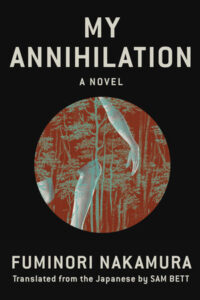
Fuminori Nakamura, My Annihilation
(Soho)
I read this one on the plane ride down to Texas from NYC. Maybe it was just the creeping doom of Omicron, and maybe it was the way that the guy next to me seemed to creep himself out reading over my shoulder, but My Annihilation is one hell of a ride. From the first sentence—“Turn this page, and you may forfeit your entire life”—Nakamura plays tricks on the reader, the narrator, and even the notion of existence itself. Perfect for those who like their noir obsessive and deeply philosophical. –MO
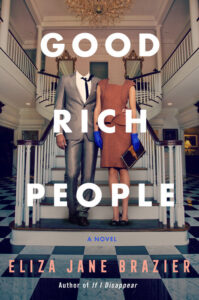
Eliza Jane Brazier, Good Rich People
(Berkley)
In Eliza Jane Brazier’s sophomore effort, the set-up is king: a wealthy couple gets their kicks from renting a garage apartment to someone who can’t say no, then gradually ruining that person’s life. Only their new tenant isn’t who they think she is, and she’ll do anything to keep her new home and the status that comes with it. –MO

Luke Cassidy, Iron Annie
(Vintage Crime/Black Lizard)
Luke Cassidy’s debut is as assured as a third novel, told in the unique and gritty cadences of Dundalk, an Irish border town. Small-time criminal Aoife and her girlfriend Annie are having a good old time doing nothing in particular when they get a surprising opportunity for a vacation: the local dealer, Rat King, wants Aoife and Annie to sell 10 kilos of coke stolen from a rival far from his enemy’s eyes and ears, which leads to a trip to Brexit Britain, and soon enough, some very bad decisions.–MO

Mark Prins, The Latinist
(Norton)
In this moody academic noir, Mark Prins retells the myth of Apollo and Daphne in a contemporary setting which playfully interacts with past knowledge. Oxford student Tessa Templeton has reached dazzling academic heights with the help of her controlling mentor, Christopher Eccles, who has also cut off all routes for her to her move beyond his influence. When Tessa’s research threatens to free her from Chris, things get ugly fast, and the true dynamics of their relationship finally become clear. –MO

Lisa Lutz, The Accomplice
(Ballantine)
Lisa Lutz just gets better and better, and I know I say this every time, but The Accomplice may just be her best so far. Lutz’s latest explores a complicated relationship between Owen and Luna: best friends, confidants, and enablers. Owen is irresistible to women, except for Luna, who’s content to be his forever wing-woman, both living nearby each other in the suburbs. But when Owen’s wife turns up dead, it raises the specter of his ex-girlfriend’s death. The two must finally address old, unanswered questions about what exactly happened, and what part Luna played, the first time around.–MO
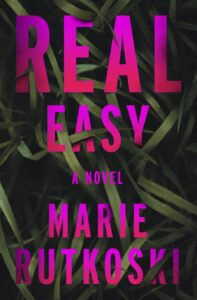
Marie Rutkoski, Real Easy
(Henry Holt)
Real Easy is centered around the complex lives of dancers at the Lovely Lady strip club. When star performer Samantha sets out to drive a drugged-out coworker home, and the car never makes it back, homicide detective Holly is convinced that one of the dancers may still be alive. Set in the last year of the 20th century, and with an end-of-an-era feel to its glossy, suffering setting, Real Easy joins other crime novels in using noir poetry to tell the stories of sex workers.–MO
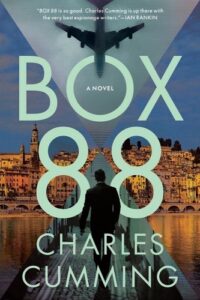
Charles Cumming, Box 88
(Mysterious Press)
A beguiling new novel from one of the modern masters of spy fiction, Box 88 does double duty—at once an edge-of-your-seat thriller with world order and innocent lives at stake; also a meditative coming-of-age tale, one that looks back at the first formative days of a spy’s recruitment and training. Cumming weaves together the threads—one set in 1989, the other in 2020—with admirable skill, spinning a tale that will leave fans of erudite, adrenaline-soaked espionage fiction highly satisfied. –DM
___________________________________
FEBRUARY
___________________________________

Anna Pitoniak, Our American Friend
(Simon and Schuster)
An exhilarating ride through recent Cold War highlights, framed cleverly with the story of a disenchanted journalist hired to ghost write the First Lady’s memoir; in this case, the First Lady comes from the Soviet orbit, is a former model, and has shadowy ties to the KGB. So why is she revealing her secrets now? That’s the question that will keep you reading. –DM

Jennifer Haigh, Mercy Street
(Ecco)
Haigh’s subject is often the existential crises at the heart of contemporary American society, and with hew newest novels, that crisis is coming to a head in a disparate community surrounding a Boston clinic, a local pot dealer, and a dangerous anti-abortion crusader. At the center of the nexus is one counselor at Mercy Street who ties this melancholy, desperate world together. –DM
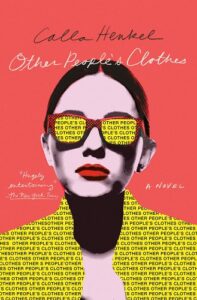
Calla Henkel, Other People’s Clothes
(Doubleday)
Reading this book is like going to a Berlin nightclub and staying out dancing till 4 AM only to keep partying afterward. Except in the unending party of Other People’s Clothes, one of the party hosts ends up dead. Calla Henkel is based in Berlin and runs a “bar, performance space, and film studio called TV in Berlin” which should make anyone reading this book feel very cool by proxy. In Other People’s Clothes, two exchange students obsessed with the Amanda Knox trial start a weekly shindig in their luxe apartment, only to have things go terribly, irrevocably south. –MO
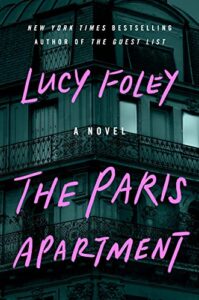
Lucy Foley, The Paris Apartment
(William Morrow)
I’ve been a fan of Lucy Foley since her first novel, and The Paris Apartment looks poised to uphold her reputation for striking the perfect balance between traditional mystery and psychological suspense. In an apartment complex full of wacky and standoffish characters, a young woman searching for a place to crash heads to her brother’s flat only to find him missing. As she digs into his disappearance, she starts to realize that everyone in the building has secrets of their own. If you’ve been wanting to rewatch The Tenant and can’t because it feels ew now, then this book’s the one for you! –MO
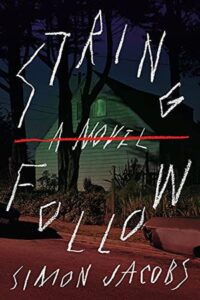
Simon Jacobs, String Follow
(MCD/FSG)
According to Lit Hub’s Deputy Editor Emily Firetog, this book is very creepy, and that’s all the recommendation I need to dive into Simon Jacob’s haunting suburban gothic. In String Follow, described by the publisher as a “darkly comic suburban Gothic” (which is a highly accurate description), a bunch of ne’er-do-wells, misfits, and lonely teenagers fall prey to dark impulses placed in their minds by a mysterious set of voices. This is both a really good horror novel and an absurdist commentary on radicalization via internet-induced paranoia. –MO

Klare Ladner, Nightshift
(Custom House)
This exciting debut by Kiare Ladner revolves around the friendship between Meggie and Sabine—but possibly “friendship” is too strong a word. It’s more like a fixation, a decision on Meggie’s part to emulate and follow Sabine to the ends of the earth. Meggie meets Sabine at work, and even though Meggie seems to have all the facets of a good life (stable job, boyfriend, education), when she meets Sabine, she would, and does, throw it all away just for the chance to live alongside her. When Sabine trades her hours for the nightshift, so too does Meggie, and they begin living their nocturnal life together, exchanging the plain ease of daytime and boyfriends and normalcy, for the mystery and liminality of the night, and all it shrouds and reveals. –Julia Hass, Lit Hub Contributing Editor
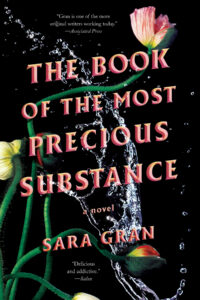
Sara Gran, The Book of the Most Precious Substance
(Dreamland Books)
You can read more about it here, but Sara Gran has launched her own publishing company dedicated to bringing authors the sense of collaboration and agency that Hollywood writers take for granted. Her first book to publish with the new imprint is, to put it bluntly, very sexy: a rare books dealer and an old friend turned potential new lover team up to track down a valuable occult sex manual from the 17th century (yes, those precious substances). So good! And so sexy…Read this one at home, folks! –MO

Bonnie Kistler, The Cage
(Harper)
Late at night, two women who work for an international fashion conglomerate get into the elevator. Only one emerges alive. And in this breakneck legal thriller, it’s up to the survivor to prove that she didn’t get into that elevator with any intention to harm her now-dead superior. I’m really enjoying a new trend in legal thrillers where law has….almost nothing to do with what’s just a really good psychological thriller plot. There’s a couple of others like on here, if you want to keep an eye out for easter eggs. –MO

Paul Vidich, The Matchmaker
(Pegasus)
Any new spy novel from modern master Paul Vidich is cause for celebration, and that’s particularly true this year, as he seizes on a fascinating chapter of the Cold War, zeroing in on “Romeo” agents in Berlin–Stasi operatives sent to court vulnerable women who could give them reliable cover for activities in the west. Vidich follows the upending of one woman’s life as she learns of her disappeared husband’s secret life and motivations, launching into a mission to expose the network. Vidich develops complex characters like no other spy novelist at work today. –DM
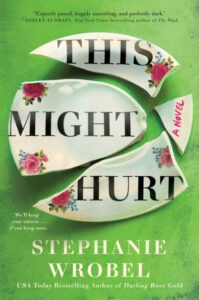
Stephanie Wrobel, This Might Hurt
(Berkley)
This is a banner year for great cult novels, and no, I don’t mean cult classics. I mean literal cults. Natalie Collins is worried about her sister, who’s signed up for a minimum six-month-stay at Wisewood, billed as a private island in which guests detox from technology in order “Maximalize Their True Selves” (already suspecting hints of NXIVM here). A year later, her sister’s still AWOL, and Wisewood has some surprising—and threatening—demands. –MO

Erica Katz, Fake
(Harper)
Katz’s latest is an exemplary art thriller, focused on the exploits of one Emma Caan, lowly producer of legal replicas, plucked out of obscurity by a Russian oligarch who wants her to work for him, navigating through elite international circles, bidding on masterpieces, and also, obviously, producing some forgeries. It’s a dizzying ride and Katz keeps the twists coming with some fine character work and a sharp eye for the absurdities and delights of the arts-minded jet set. –DM
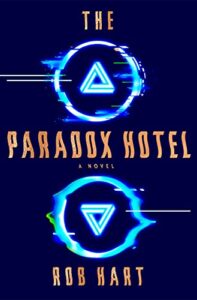
Rob Hart, The Paradox Hotel
(Ballantine)
Rob Hart blew my mind with his last book, The Warehouse (a perfect novel for understanding the behemoth that is Amazon), and his new book looks to be just as creatively realized. In the titular Paradox Hotel, time travelers check in to rest before their next flights to the past or present, dressed in lavish costumes from across history. When one of the hotel’s wealthy clients is found murdered, and only the hotel’s security manager can see the corpse, things start to get really weird. And with a blizzard surrounding the hotel and the timestream acting up, everyone’s trapped with a murderer on the loose. I cannot wait to read this shit. –MO
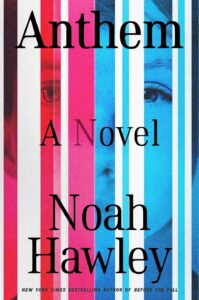
Noah Hawley, Anthem
(Grand Central)
Novelist and showrunner Hawley hasn’t had a novel in a spell, but soon as you crack open Anthem, you’ll see what the wait was for: it’s an epic thriller, aiming at no less than a sweeping allegory for the state of the country’s soul. There’s also a pretty captivating quest involved, so you can expect to get sucked into this one quickly and come out the other side more than a little unsettled.–DM
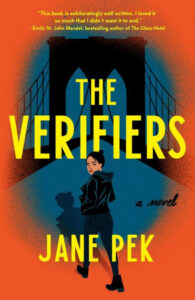
Jane Pek, The Verifiers
(Knopf)
This is that rare combination of technothriller and traditional mystery. What would you pay to know that the guy on that dating app was bonafide? Claudia, who’s been recruited to verify identities at a “referrals-only dating agency”, now knows—and that answer is, a lot. But what happens when the clients aren’t the only ones lying? When Claudia’s client vanishes, she goes down an ugly rabbithole into the nature of truth, and the truth of corporate malfeasance. –MO
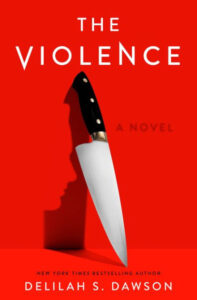
Delilah S. Dawson, The Violence
(Ballantine)
The Violence continues a trend in dystopian thrillers concerned with gendered violence, including Vox and The Power. In The Violence, a new pandemic arrives—this one with the power to infect its hosts into committing unstoppable acts of savagery against all those nearby. It isn’t long, however, before some begin to see their infection as their savior, for finally those with the Violence can fight back against those who are bigger and stronger than they are. Throw in a bat-shit professional wrestling plot arc, and this one is not to be missed. –MO
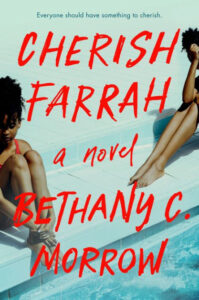
Bethany C. Morrow, Cherish Farrah
(Dutton)
Cherish Farrah is a stunning one-two punch of social horror and psychological thriller. When Farrah’s family loses their home, they face a stark choice for their daughter: either bring her with them to a new job in a new state, or leave her to stay with her best friend Cherish in their wealthy country club community. Compared to Farrah’s hard-edged parents, Cherish has the kindest, most loving parents imaginable, but do they really love Farrah the way they love their own daughter? Or is Farrah just playing a bit part in the Story of Cherish? –MO
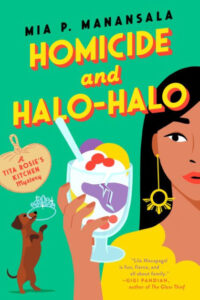
Mia P. Manansala, Homicide and Halo-Halo
(Berkley)
Mia P. Manansala burst onto the cozy scene with last year’s hilarious debut, Arsenic and Adobo, introducing plucky heroine Lila Macapagal and her wacky family, and now Lila is back again for even more shenanigans (and romantic entanglements). As the long hot summer begins, Lila is struggling with decisions: which suitor shall she choose, and when will she finally open her new cafe? Adding to her misery is a resurrected beauty pageant that will bring nothing but trouble to the small community of Shady Palms. Great for those who like their cozies full of delectable cuisine and good-hearted fun. –MO

Gretchen Felker-Martin, Manhunt
(Tor Nightfire)
I dub this the great Terf-pocalypse novel. A found family must navigate complex dynamics between themselves, also while killing a whole lot of feral men and TERFs. In a dystopian scenario where a plague attacks testosterone levels, trans women are able to successfully keep the disease at bay by hunting the now feral men and eating their balls, as well as processing various plants for estrogen. Meanwhile, the TERFs are spreading hate against trans women by warning of the dangers of what happens when testosterone gets high enough to activate the plague, despite so many successfully fending it off. Oh, and a rich girl in a bunker does some really weird shit. I cannot underscore enough how much I love this novel. –MO

Lan Samantha Chang, The Family Chao
(Norton)
Everyone loves a good dead patriarch novel, and The Family Chao promises to be one of the juiciest. The Chaos have quietly run their American-Chinese restaurant in the heart of midwestern America for over three decades, but it’s not until the restaurant’s owner is found dead, and his relatives and workers reveal their long-simmering tensions, that the town finally finds itself willing to see the complicated people beyond the model minority facade. Perfect for those who wish that Succession was about a murder. –MO

Caroline Frost, Shadows of Pecan Hollow
(William Morrow)
This is a truly great year for Texas crime novels, and Shadows of Pecan Hollow is no exception. Janet Finch, the author of White Oleander, describes this one as “Badlands meets Paper Moon” which is really all I need to want to read it. Split between the 70s and 90s, Shadows follows Kit Walker as a runaway preteen who ends up on the lam with a sociopath, carving their way through gas stations as they road-trip across the country. Twenty years later, Kit has a daughter and a respectable life, but when her conman reenters her life, she’s not sure if she can believe he’s changed—or if she even wants him to. –MO

Dane Bahr, The Houseboat
(Counterpoint)
I, personally, would never live on a houseboat, so I’m glad someone wrote a book about how creepy they are. I also love disgusting fiction and creepy mannequins, so this book is basically perfect. In what looks to be a classic scapegoating novel, a social outcast is blamed for the murder of a mysterious woman’s missing boyfriend. Climate change and community suspicion converge when a storm rolls in and the townspeople’s hatred reaches its peak. –MO
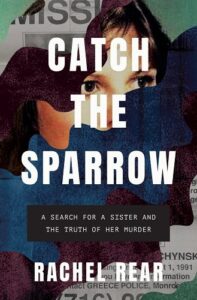
Rachel Rear, Catch The Sparrow: A Search for a Sister and the Truth of Her Murder
(Bloomsbury)
Rachel Rear grew up often thinking about her stepsister Stephanie Kupchynsky. How could she not? Rear’s mother got together with Kupchynsky’s father after Stephanie’s disappearance from her home Rochester in an age of serial killers. Stephanie had moved from Martha’s Vineyard to leave an abusive partner, but fell victim to a mysterious assailant while on the cusp of a new life. Rachel Rear’s beautiful, heartbreaking memoir is also a fierce interrogation of violence against women in American culture, and essential reading to understand the experience of the families left behind.–MO

Sarah Weinman, Scoundrel: How a Convicted Murderer Persuaded the Women Who Loved Him, the Conservative Establishment, and the Courts to Set Him Free
(Ecco)
In 1957, a teenage girl named Victoria Zielinski was murdered by a man named Edgar Smith. For the duration of the 60s, while in prison for the crime, Smith wrote numerous pleas for the overturning of the conviction, including to William F. Buckley Jr. In 1971, Edgar Smith was released, in large part thanks to Buckley, who led a campaign on his behalf, being apparently unable to believe that someone who held him (and his conservative beliefs) in such high regard could be a murderer. In 1976, Smith attempted murder again, and was finally shut away for life. Sarah Weinman does an impeccable job with this wild story of murder, celebrity, politics, and the American ability to put unsavory characters on a pedestal. –Julia Hass, Lit Hub Contributing Editor

Neal Bradbury, A Taste for Poison: Eleven Deadly Molecules and the Killers Who Used Them
(St. Martin’s)
Physiology and biophysics professor Neal Bradbury combines chemistry, medical history, and true crime in this fascinating book about the precise effects of lethal poisons. Bradbury picks several case studies, all from real-life murders throughout history, and breaks down how their poisons work on the molecular level. Written with a scientist’s acumen but explained clearly for readers of all backgrounds, it is a clever and balanced breakdown of what it takes to manipulate the human body. –OR

Robin Kirman, The End of Getting Lost
(Simon & Schuster)
It’s 1996. Gina and Duncan are traveling in Switzerland, and Gina’s had a terrible head injury that’s made all her recent memories hard to trust. Plus, Duncan keeps telling her stories that don’t ring even the faintest bell. Could he be making up memories from scratch? And what happened on that fateful night in Central Europe? I can’t wait to read this psychological thriller about memory, deception, and cross-country travel before cellphones. –MO

Mindy McHugh, Chloe Cates Is Missing
(Scarlet)
A sharp-edged new thriller with a satirical underbelly and an emotionally powerful family drama at its center. Thirteen year old Chloe Cates is at the hub of a burgeoning empire, the star of a hit web series with growing influence, when suddenly she goes missing. Her mother, who is of course also her manager, gets onto social media to initiate the search, and the publicity circus, but soon finds herself drawn into a deeply sinister world of fans, onlookers, and amateur investigators. MMcHugh’s vision makes for a deeply unsettling book. –DM
___________________________________
MARCH
___________________________________
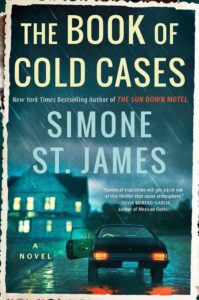
Simone St. James, The Book of Cold Cases
(Berkley)
Shea Collins is a true-crime reporter, drawn to the subject matter because she survived an abduction as a child. When she encounters Beth Greer, the wealthy woman who had been a suspect in the Ladykiler Murders of 1977, forty years before, she asks for an interview, not expecting Beth to say yes. But as she meets Beth week-to-week in her isolated mansion, she begins to realize that something is not right. You will sink into this novel faster than you would a peat bog. –OR

Harlan Coben, The Match
(Grand Central Publishing)
Harlan Coben’s smooth, clean prose and pulse-pounding storytelling are on full display in his latest. Wilde, a once-feral boy, has now grown into a man who’s never quite been able to let the mystery of his origins go. One day, while researching, he gets a hit from a DNA database, but the new relatives he encounters may be the perpetrators of a sinister plan with wide-spread repercussions for us all. Paranoid, thrilling, and unputdownable. –MO

Cara Black, Murder at the Porte de Versailles
(Soho)
Everyone’s favorite sophisticated sleuth is back, this time for her 20th investigation. In the fall of 2001, Parisians are still shocked at the fall of the towers, and Aimee Leduc is grieving her father while celebrating her daughter’s third birthday. When Aimee’s friend Boris is accused of setting a bomb off at a police lab, she throws herself into clearing him of the accusation, glad for the distraction, but will her her newfound energy lead her into more danger than ever before? I can’t wait to put on a fancy yet understated little black dress, pick up a glass of cabernet, and get reading. –MO
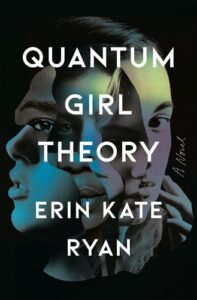
Erin Kate Ryan, Quantum Girl Theory
(Random House)
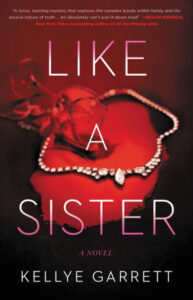
Kellye Garrett, Like a Sister
(Mulholland)
I adored Kellye Garrett’s Detective by Day series, set in sunny California, and I love love loved her equally snarky but much darker new standalone, Like a Sister. A Black reality TV star is found murdered, and only her sister Lena cares why. As Lena follows the evidence to figure out why her sister would end up dead, she also investigates her own past, and tries, belatedly, to heal the fractures in her family. With tight plotting, deep characterizations, and Chandler-esque metaphors, Like a Sister is bound to be one of the best psychological thrillers of the year. –MO

Wayne Johnson, The Red Canoe
(Agora)
The cover alone should make this one worth picking up, but the plot looks just as good. A lonely man with a savior complex meets a young girl who’s suffering. Together, they can gain some sense of control over their own lives, and slowly work to heal themselves and punish those who’ve harmed them. A beautiful story of love and vengeance from an author to watch. –MO

Roger Scarlett, Cat’s Paw
(American Mystery Classics)
A classic “closed circle” mystery, perfect for both aficionados and readers only now discovering the joys of Golden Age detective fiction—this one was written by Dorothy Blair and Evelyn Page, who worked under the pen name Roger Scarlett and were one of the first same-sex couples to make their mark as co-authors of mystery fiction. (An introduction by CrimeReads favorite Curtis Evans will offer readers the context needed for a deep appreciation of the work.) The mystery revolves around a wealthy and demanding man hanging onto the last of the great properties in Boston’s Fenway district, who summons his many heirs and dependents to his home, only to be murdered before the summit fully begins. –DM
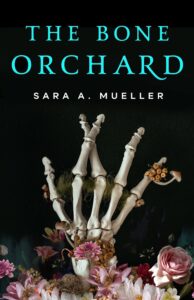
Sara A. Mueller, The Bone Orchard
(Tor)
2020 was my big gothic year, 2021 was all about the horror, and now 2022 is going to be the year I Notice Dark Fantasy. There’s, like, so much good dark fantasy out there. I hesitate to claim any knowledge of or expertise within this lovely, morbid subgenre. But I can tell you that the visual creativity of The Bone Orchard is stunning. Charm, a powerful witch and mistress to the kingdom’s aged emperor, spends her days imprisoned in luxury, creating bone ghost simulacra of herself at different ages in life. Together, the bone ghosts serve the refined clients of Charm’s tasteful bordello, and when Charm’s emperor is murdered, she follows his last instructions: to find who has killed him, and to send his dangerous sons far from the throne. –MO
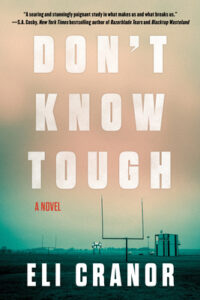
Eli Cranor, Don’t Know Tough
(Soho)
Don’t Know Tough is earning all the comparisons its getting to Friday Night Lights—but not the charmed world of the TV show. No, Cranor channels the down-and-dirty world of real high school sports, just as the original book and film versions of Friday Night Lights did before Coach decided to Inspire Us. Don’t Know Tough explores the nexus of class, race, language, and poverty in pushing ordinary teens to brutal acts, and ordinary coaches towards brutal commands. A star player is causing problems for his new coach, who’s got one last chance to make it back into his coaching star father-in-law’s good graces. The coach thinks he’s mentoring the kid. What he’s actually doing is far darker. –MO
Gu Byeong-Mo, The Old Woman With the Knife
Translated by Chi-Young Kim
(Hanover Square Press)
A sixty-five-year-old female assassin, need I say more? Byeong-Mo’s novel follows Hornclaw, the aforementioned female assassin who finds herself on the cusp (or rather, the expectation) of retirement. But when an injury leads her to a doctor and his family, her own feelings and emotions come up to the surface, and with them, a new kind of stake. The Old Woman with the Knife, Byeong-Mo’s first novel to be translated into English from Korean, is sardonic and funny, as it probes at the expectations around aging women and their bodies. –Snigdha Koirala, Lit Hub Editorial Fellow
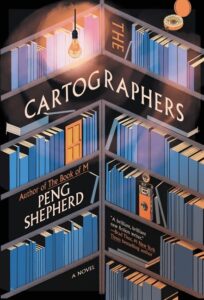
Peng Shepherd, The Cartographers
(William Morrow)
If you enjoyed John Green’s Paper Towns, but always wanted to read a book about ghost maps written for adults and that actually made sense, then The Cartographers is the book for you! Nell Young, once a rising star in the world of cartography, is working a dead-end job making fake old maps when the sudden death of her famed archivist father sends her on the adventure of a lifetime. Secret societies, vanishing buildings, and a rekindled romance soon follow, for what is sure to be one of the cleverest mysteries of the year. –MO
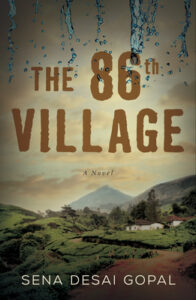
Sena Desai Gopal, The 86th Village
(Agora)
Environmental destruction and human suffering converge in a small village beset by illegal ore mining concerns and threatened by a new dam project. When a young girl arrives in the village, her misfortune tied to the village’s own, she becomes a catalyst for a new push against the many forces that beset the locals, even as their own secrets and accommodations are slowly revealed. If you’ve been looking for the perfect followup to Coyotes of Carthage, this book’s the one! –MO
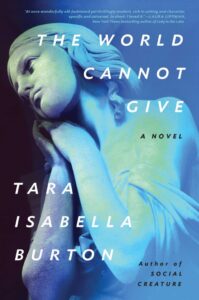
Tara Isabella Burton, The World Cannot Give
(Simon & Schuster)
Burton’s second novel is just as deliciously involving as her debut Social Creature, but makes rather better use of her doctorate in theology and ongoing religious scholarship. It is set at a tiny academy in Maine, where a sensitive teenager obsessed with an obscure novel—whose author, a student at the school, died at 19—falls in with a cultish church choir of boys, led by the brutal and neurotic Virginia. It’s a book about the nature of and limits of fervor, religious, sexual, and otherwise, and a spellbinding coming of age story that—despite being set in the Instagram-laden present—feels somehow plucked out of time. –Emily Temple, Lit Hub Managing Editor
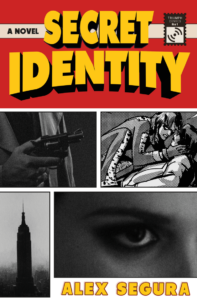
Alex Segura, Secret Identity
(Flatiron)
Alex Segura has long been a CrimeReads favorite, and his latest novel marries his love for comic books and noir, featuring a devilishly plotted murder mystery and gorgeously penned comic inserts (this is definitely one you’ll want to buy as a physical book). Set in 1970s New York during a nadir in comics publishing, Secret Identity follows Carmen Valdez, an assistant at a midsize comics publisher, who is recruited to help her coworker create a new superhero character—but when he turns in the draft, all her contributions are uncredited, and Carmen can’t ask her coworker to fix things because he’s turned up dead. –MO

Jacqueline Winspear, A Sunlit Weapon
(Harper)
No one writes historical mysteries quite like Jacqueline Winspear, and her latest Maisie Dobbs novel should be a fitting continuation of the series, this one featuring a drop-in from none other than Eleanor Roosevelt (and we all know how good Winspear is at writing strong women with wit and verve). In October of 1942, Dobbs is called in to investigate the deaths of several pilots in what may be linked to a German plan to assassinate the First Lady. Maisie is, of course, more than a match for any of history’s antagonists. –MO

Joe R. Lansdale, Born for Trouble
(Tachyon Publications)
If you can’t wait for the next full-length Hap and Leonard novel (coming out this June from Mulholland Publishing), then you’re in luck, for an upcoming collection out this May proves once again that no one writes a short story like Lansdale. I’ll let S.A. Cosby’s blurb on the book do the rest of the talking: “You could call Born for Trouble a collection of stories. But that’s like calling Paradise Lost by Milton a poem. Born for Trouble is a road map through 20th-century crime fiction.” –MO

Hannah Capin, I Am Margaret Moore
(Wednesday Books)
In this gorgeously written novel set at a sailing camp run with military precision, the girls of Deck Five serve as Greek chorus to a tale of murder and revenge. The girls are fiercely loyal to their bunkmates, and when one of their own falls prey to the waters, they know to dig further and find out who sent her to her watery grave. The structure of the book, split between several summers at the camp, serves to underscore the cohesiveness of this tight-knit group that will do anything to avenge a loss. I truly enjoyed this book. And I hated summer camp, so that’s definitely a win for the book. –MO

Erika Krause, Tell Me Everything: The Story of a Private Investigation
(Flatiron)
Erika Krause has the kind of face where people tell her everything; or at least, that’s how she got hired as a private investigator when a lawyer found himself sharing far more with her in a bookstore than he usually would. He hired her on the spot to help him investigate a sexual assault at a college party, while he sued the school for creating a culture that would not only allow, but encourage, multiple instances of rape. Krause tells the story with fierce outrage for the victims and a wry, self-deprecating wit when it comes to her own skills. This book fills the hole left in my heart by the end of Lie to Me. RIP that show. –MO
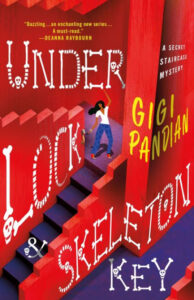
Gigi Pandian, Under Lock and Skeleton Key
(Minotaur)
Gigi Pandian is the reigning QUEEN of locked room mysteries (check her explainer piece for CrimeReads here) and her new series brings all her cleverness and sense of staging to bear in a plot that I soon hope will be an actual escape room. Tempest Raj is a disgraced magician, forced to return to her family’s secret-room-building business after a disastrous show in which her stage double betrayed her. When Tempest finds a corpse hidden in a walled-up secret room at her family’s latest work site, she’s already a little freaked out, but when the dead body turns out to be her lookalike stage double, it’s up to Tempest’s entire wacky family to figure out how to save her from the same fate. For those who’ve been waiting for the perfect fictional family to take the place of Lisa Lutz’s The Spellmans, look no further. –MO
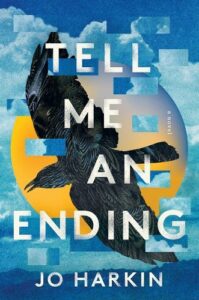
Jo Harkin, Tell Me An Ending
(Scribner)
In this speculative thriller, a revolutionary technique has allowed those who wish to erase any memories they choose. Some want to know what they’ve had removed from their brain, while others prefer to remain in the dark about any memory loss at all. But some of those who elected not to know are now having flashes of their erased memories, and they’re confused, angry, and ready to sue. What will a powerful medical corporation do to keep the memory business running? And what if some of the patients didn’t elect to have any memories removed at all? I love big question thrillers, and this one promises to be just as thought-provoking as it is suspenseful. –MO

Susan Jonusas, Hell’s Half-Acre: The Untold Story of the Benders, America’s First Serial Killer Family
(Viking)
The Bloody Benders were basically Psycho on steroids: they owned a roadhouse in the mid-19th century and killed a whole lot of their guests. The family fled the property in 1873, after which a number of corpses were discovered, including several children. It was believed that the victims were targeted for their money, but the savagery of the crime seemed to imply some enjoyment as well. –MO
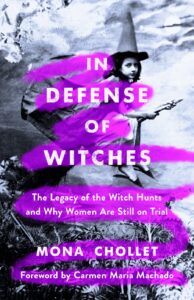
Mona Chollet, In Defense of Witches: The Legacy of the Witch Hunts and Why Women Are Still on Trial
Translated by Sophie R. Lewis
(St. Martin’s Press)
This book looks so cool! And it’s not just cause of that perfect use of melodramatic purple on the cover. First of all, let’s just take a moment to celebrate the rarity of a work of nonfiction by a woman getting translated into English, because that doesn’t happen all that often. Plus, it’s about witches. And not only the history of witch burnings and what they meant for the persecution of difficult women, but how those same trends of ostracization and punishment are played out today. Ooh and there’s an intro from Carmen Maria Machado, which really clinches this one as a must-read. –MO
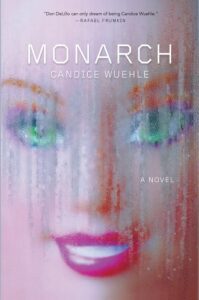
Candace Wuehle, Monarch
(Soft Skull)
This book is fantastically strange. Jessica Clink is damaged enough from her childhood career as a pageant queen, but could she also be a government sleeper agent? That might explain some of the dreams she’s been having, and the odd behavior of her closest friends and family, all of whom seem to be in on the plan to control her and her powers. Monarch feels a bit like the folks behind You’re Wrong About teamed up with the writers of Killing Eve, and they all did some psychedelics and wrote a script together. –MO
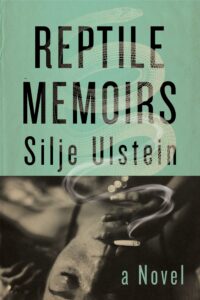
Silje Ulstein, Reptile Memoirs
Translated by Alison McCullough
(Grove)
This one grabs you from the get-go with its serpentine cameos and dissolute Scandinavians. Ulstein’s debut is a smash hit across Europe and well deserves all the comparisons it’s earning to Gillian Flynn’s work. Plus, snakes!!! –MO

Louise Candlish, The Heights
(Atria)
Candlish is back this year with another twisty, compelling thriller, spinning a web out of a chance sighting of a believed dead man on the roof of a very distinctive London building. Candlish’s novels are always stylish and enticing, with a dark edge that slowly works its way under the skin. –DM
___________________________________
APRIL
___________________________________
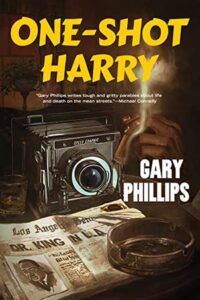
Gary Phillips, One Shot Harry
(Soho)
Phillips’ vision of Los Angeles in 1963 comes to vivid life in the form of Harry Ingram, a news photographer and part-time process server who’s putting himself in the firing line all day long as the city’s racial and social divides pull further and further apart. When an old Army friend of his is killed in a car accident, Ingram takes his crime scene photos and his wits on a journey through a deeply corrupt city, looking for the final answers for one man’s death. –DM

Sascha Rothchild, Blood Sugar
(Putnam)
Sascha Rothchild has worked on some of our favorite shows in the (now virtual) office, including GLOW and The Bold Type, so it’s no surprise that when I was given an advanced reading copy of her debut thriller, Blood Sugar, I devoured it (despite the book’s rather effective message of self-care and restraint). When our heroine is accused of murdering her diabetic husband, she’s terrified—but not for the reason’s you’d think. You see, she didn’t kill her husband, but she has killed. And her husband’s mother is getting closer and closer to the truth. –MO
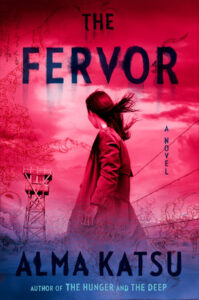
Alma Katsu, The Fervor
(Putnam)
Alma Katsu’s latest historical horror thriller takes us into the internment camps of WWII, where Meiko Briggs and her daughter Aiko wait for news of her husband at war, and find themselves at the center of a strange new pestilence, and in confrontation with folkloric monsters. No one does historical gothic horror better than Katsu, and I can’t wait to immerse myself in this very creepy tale. –MO
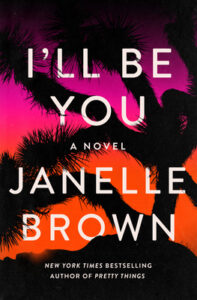
Janelle Brown, I’ll Be You
(Random House)
I adored Janelle Brown’s last novel Pretty Things, and her latest should be just as compelling. A pair of twins, once inseparable during their childhood as b-movie actors, have grown apart as adults. Elli leads a sober life in the suburbs, and Sam is as far from stable as can be. When Elli disappears, leaving her confused husband and small child behind, it’s up to Sam to step up in the search for answers. Brown uses the concept of interchangeable personhood to great effect in this haunting psychological thriller. –MO
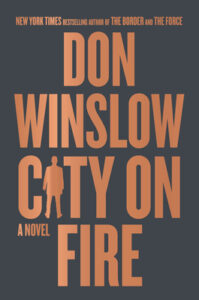
Don Winslow, City on Fire
(William Morrow)
In Don Winslow’s magisterial ode to the Iliad and the Aeneid, two crime families battle for New England after the appearance of their own Helen of Troy is a catalyst for full-scale conflict. Winslow’s work is at the pinnacle of modern crime writing, and City on Fire promises to continue his run of powerhouse emotional noir. –MO
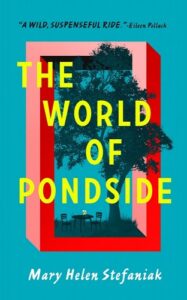
Mary Helen Stefaniak, The World of Pondside
(Blackstone)
Pondside Manor is a nursing home like any other, with one exception: its residents can play a new video game, The World of Pondside, that can allow them to relive new old memories, or create meaningful new ones. But when its creator is found dead and the video game stops working, the residents grow desperate to get it back. Solving the murder is only the first step, but it’s a necessary one towards getting their imaginary lives back. –OR

Grace D. Li, Portrait of a Thief
(Tiny Reparations)
There’s a ton of good art thrillers coming out this year, but Portrait of a Thief is that rare, perfectly executed heist that reminds us why we love to pair art and crime. When thieves take 23 priceless works of Chinese art from Harvard’s (now-renamed) Sackler Gallery, a nearby Chinese-American student witnesses the crime, and finds himself invited to join a gang dedicated to returning art to its nations of origin or otherwise liberating the stolen artifacts of colonialism. Which means this book will be very, very, good. –MO

Paul Fischer, The Man Who Invented Motion Pictures: A True Story of Obsession, Murder, and the Movies
(Simon & Schuster)
I’m very excited for Paul Fischer’s gripping new book, which tells the forgotten history of Louis Le Prince, who vanished forever after developing a device that could project moving images—an invention that was demonstrated publicly three years after his disappearance by the shady professional Thomas Edison, who claimed to have invented the machine himself. It’s a clear-eyed history of the cutthroat technological world of the late nineteenth century that seeks to give credit back to a man who had everything taken from him. –OR
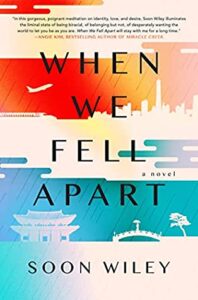
Soon Wiley, When We Fell Apart
(Dutton)
In this moody noir set in Seoul, a Korean-American expat goes searching for answers when the university student he’s been hooking up with dies by suicide. Intercut are passages that tell the story from the dead woman’s point of view, whose inner life is far more rich and complex than those around her could acknowledge, even as they each tried to project on her an image based from their own wants and needs. –MO

Jake Hinkson, Find Him
(Polis)
I love a good reversal on the woman being saved, and in Find Him, it’s the girl who goes after her missing fiance, rather than vice versa. Since there’s no one more determined than a preacher’s daughter, she wades into deep shit fairly quickly, but she’s a lot tougher than anyone thinks and she’s ready to do whatever it takes to save her man. –MO
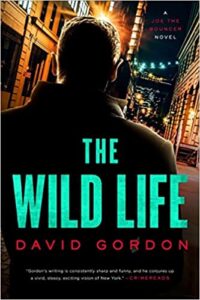
David Gordon, The Wild Life
(Mysterious Press)
In the fourth installment to his “Joe the Bouncer” series, Gordon spins out a new layer of mythology for his wildly, fascinatingly imagined vision of modern New York, a city run on codes and understandings, with a criminal class that looks to one Queens resident, a Harvard and Special Ops washout, to act as its unofficial mediator. In this case, Joe is on the trail of a serial kidnapper targeting the city’s most illustrious sex workers. The series has an alternate world appeal not unlike John Wick, but run through with a deep appreciation for classic literature—and classic crime fiction in the Donald Westlake and Lawrence Block mold. It’s not to be missed. –DM

Amanda Bestor-Siegel, The Caretakers
(William Morrow)
In this Paris-set tale of slow-burn suspense, several American au pairs are working in a rarified neighborhood when one is arrested for the death of her young charge. Like other recent works such as Such a Fun Age and The Perfect Nanny, The Caretakers grounds its plot in the complexities of class, gender, and race when it comes to caregiving, and examines the behind-the-scenes work needed to uphold the illusion of the nuclear family. –MO
___________________________________
MAY
___________________________________
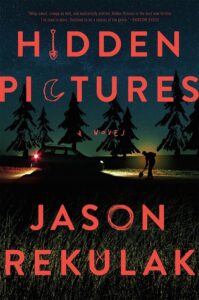
Jason Rekulak, Hidden Pictures
(Flatiron)
I am always down to read a new take on the perennially-creepy “child freaks out nanny” story (I watched The Innocents a LOT as a child). In Hidden Pictures, Jason Rekulak has crafted a beautiful, terrifying, and surprisingly kind take on this classic setup. Mallory Quinn, newly sober and ready to get her life back together, takes a live-in job caring for a delightful five-year-old, who just so happens to draw increasingly disturbing pictures of a murder that may or may not have happened on the property long before. Can Mallory save her charge? And will this turn into the next “momo”? Only time (and my ability to read very very quickly) will tell. –MO
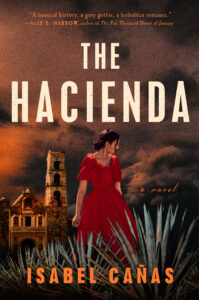
Isabel Cañas, The Hacienda
(Berkley)
Isabel Canas takes the gothic novel to the haciendas, just as Sylvia Moreno-Garcia’s Mexican Gothic took on the history of silver mining and imperialism. In The Hacienda, set just after the Mexican War for Independence, heroine Beatriz has been dispossessed of her family fortune after her father’s fall from political grace and subsequent execution. She finds a husband she feels will elevate her status and protect her mother from persecution, but strange happenings at her new estate and rumors of hauntings threaten to derail her new life, and a sexy local priest who moonlights as a witch is her only hope of survival. Lush, beautiful, and completely deserving of the comparisons to Rebecca, The Hacienda is essential reading in the gothic revival. –MO

Sarai Walker, The Cherry Robbers
(Harper)
I cannot wait to read cult fave Sarai Walker’s delightfully feminist take on the classic gothic novel. In her sophomore effort after her surprise hit debut Dietland, Walker takes us into a fictional version of the Winchester Mystery House, where the many daughters of a firearms magnate have been trying to escape their bizarre home, only to die soon after their weddings. Decades later, the sole survivor of the family finds herself thrust into the spotlight when her true identity is discovered, and must learn the secrets of her haunted home or die trying. I assume there will be many secret rooms and moving staircases, just as in the OG Winchester Home, which I still have yet to visit because it’s owned by Disney and tickets are way too expensive now. –MO

Anne Heltzel, Just Like Mother
(Tor/Forge)
Heltzel’s novel joins other recent works in asking hard questions about how to overthrow patriarchy without perpetuating it. In this case, a cult of Mothers is definitely giving the wrong message on how to overcome gender divisions to their brood of honored daughters and neglected sons. Decades after the cult’s dramatic dissolution, two former members, children when last they met, reunite and shed a dark illumination on each others’ memories. Lyrical and grotesque, Just Like Mother is written in gorgeous and shattering prose that also manages to be surprisingly comical. Perfect for those who wish Liz Nugent was writing dystopian cult thrillers. –MO
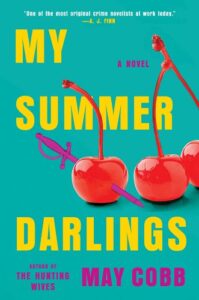
May Cobb, My Summer Darlings
(Berkley)
When I picked up May Cobb’s delightful debut last year, I became an instant fan, and her sophomore effort sounds just as fun. In a small Texas town beset by an unending heat wave, three best friends since childhood will find themselves torn apart by the arrival of a new (sexy) interloper. Sign me up! –MO

Karen Winn, Our Little World
(Dutton)
Oh, the jealousies of children. There is nothing more intense than want. In Karen Winn’s eerie, evocative coming-of-age novel, set in 1985, two sisters have a fierce rivalry, and one ends up dead. But before that, the sisters spend one long, sticky summer searching for a missing girl, along with the rest of their town. As the search continues, dark secrets come to the fore, and the sisters’ small town paradise begins to crumble. –MO

Denver Noir, ed. by Cynthia Swanson
(Akashic)
Noir in the mile high city! Just like Denver’s housing market, the city’s crime-writing scene appears to be blowing up, and these stories function as a fascinating guide to the trials and tribulations of a rapidly changing city. –MO
___________________________________
JUNE
___________________________________
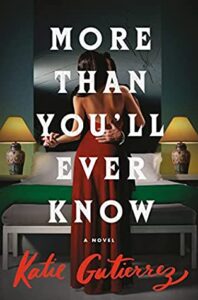
Katie Gutierrez, More Than You’ll Ever Know
(William Morrow)
In Katie Gutierrez’s powerhouse debut, a woman with two husbands loses one to the violence of the other, and a true crime writer uncovers shocking secrets decades after. I love this book more than Delores “Lore” Rivera loves both her families and now you have to read this book to understand what I mean. –MO
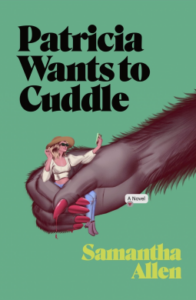
Samantha Allan, Patricia Wants to Cuddle
(Zando)
This is the lesbian Sasquatch novel you’ve always wanted. A group of finalists for a Bachelor-style show head to a remote British Columbian island to film the final episodes of the contest. While there, they encounter a female Bigfoot and her coterie of admirers, and those that do not admire her (as they properly should) are torn limb from limb because this is the most badass book imaginable. Patricia is the Sasquatch, by the way. The publisher describes it as “viciously funny” but I thought it was also kinda sweet. I’d give Patricia a cuddle. –MO

Sloane Crosley, Cult Classic
(MCD)
In this metaphysical mystery that feels like Russian Doll and Hi Fidelity had a baby, a woman goes to buy cigarettes, and encounters all of her past boyfriends, one after another. I really love the tagline for this one: “a comic mystery about love, memory, and mind control.” What more could anyone want? –MO
___________________________________
JULY
___________________________________
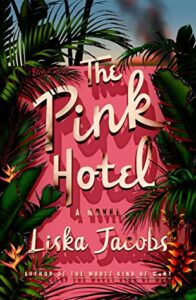
Liska Jacobs, The Pink Hotel
(MCD/FSG)
This is the perfect book to recommend to all your friends in hospitality!!! And also just the perfect book. I tore through this one like a California wildfire—an appropriate comparison, given the novel’s setting in a high-end hotel beset by fires all around. As the hotel descends into a Roman-style bacchanalia, protestors fill the streets, smoke fills the skies, and those who live and work in the hotel must make their choice between grotesque hedonism and leaving in disgust. –MO
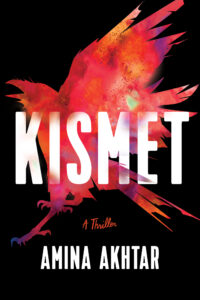
Amina Akhtar, Kismet
(Thomas & Mercer)
Interviewed here by Alex Segura, Amina Akhtar pitches her new book as “Live, laugh, die. Wellness run amok in the desert mountains.” That’s really all anyone should need to pick up this book, but I’ll also submit that her previous book, Fashion Victim, was almost criminally entertaining, and I’m certain this one will be too. –MO

Dwyer Murphy, An Honest Living
(Viking)
I was fortunate enough to get my grubby mitts on an early copy of my colleague Dwyer Murphy’s debut novel—a gloriously-atmospheric, razor-sharp, and super stylish noir set in early 2000s New York—and it blew my fedora clean off. An Honest Living is the story of a jaded attorney-turned-private eye, drawn into the shady underground world of rare book dealers, who finds himself caught in a tangled web of obsession and deceit spun by an alluring novelist and her eccentric (missing) husband. Murphy, the editor-in-chief of CrimeReads, knows classic mystery fiction and film inside out, and his novel is both expertly crafted modern-day neo-noir, and an utterly beguiling homage to one of the genre’s most iconic stories. –Dan Sheehan, BookMarks editor-in-chief

Jennifer Hillier, Things We Do In The Dark
(Minotaur)
I’ve been obsessed with Jennifer Hillier’s sly psychological thrillers since her breakout hit Jar of Hearts, and Things We Do In the Dark promises to showcase her characters’ signature slippery grasp on morality once again. Paris Peralta is found at the center of a shocking crime scene, but she’s not afraid of the police: she’s afraid of the woman from her past who will recognize the crime and come calling. I cannot wait to read this book. –MO

Kelly J. Ford, Real Bad Things
(Thomas & Mercer)
Ford’s 2017 novel, Cottonmouths, remains a standout in the suspense category, and she’s back this year with a powerful story of a young woman who confesses to the murder of her stepfather. Rather than going to jail, she carries on with her life, moves away, starts over—because the police never actually found the body. Two decades later, the corpse turns up, and she’s forced to return to her hometown in Arkansas to reckon with her past and what’s left of her family. –DM
___________________________________
AUGUST
___________________________________
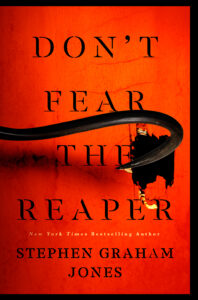
Stephen Graham Jones, Don’t Fear the Reaper
(Gallery/Saga Press)
In the summer of 2015 a rough beast slouched out of the shadows and into the waking nightmares of an unsuspecting world. His name was Dark Mill South, but that wasn’t the only name he went by.
That’s a taste of Stephen Graham Jones’ new and brilliantly crafted horror novel, Don’t Fear the Reaper (here’s a full excerpt). In this highly anticipated (by me and literally everyone else) follow-up to the immensely entertaining My Heart is a Chainsaw, Jade returns to her small town the same day that indigenous serial killer Dark Mill South sets off to seek vengeance for the Civil War-era killings of a number of innocent souls. Oh, and all the revenge must be completed by Friday the 13th. Because that is how horror works. Too bad we have to wait for August to read this one, but like last year’s late summer hit, Don’t Fear the Reaper is best enjoyed at the end of a long, hot summer. –MO

Gabino Iglesias, The Devil Takes You Home
(Mulholland)
2022 is poised for a breakout from crime world favorite Gabino Iglesias, author of Coyote Songs and Zero Saints. His newest is an intoxicating story of a man in desperate financial straits who turns himself into a hitman and accepts a highly dangerous contract on a cartel transport operation. The job takes him and two others across Texas and further into an abyss of violence, existential dread, and paranormal happenings. –DM

